DUBAI: Efforts by governments in the Middle East and North Africa (MENA) to accelerate climate action were praised at the Abu Dhabi Sustainability Week in the UAE capital.
Since its inauguration in 2008, ADSW has been bringing members of the global community together to accelerate sustainable development.
In keeping with this practice, this year’s events provided heads of state, policy makers, business leaders and technology pioneers with a platform to share knowledge, showcase innovation and outline strategies for delivering climate action.
Amid growing concerns over the impact of global warming, the UAE and Saudi Arabia, in particular, were cited by ADSW participants as examples for the rest of the world on the strength of their pioneering “green energy” initiatives.
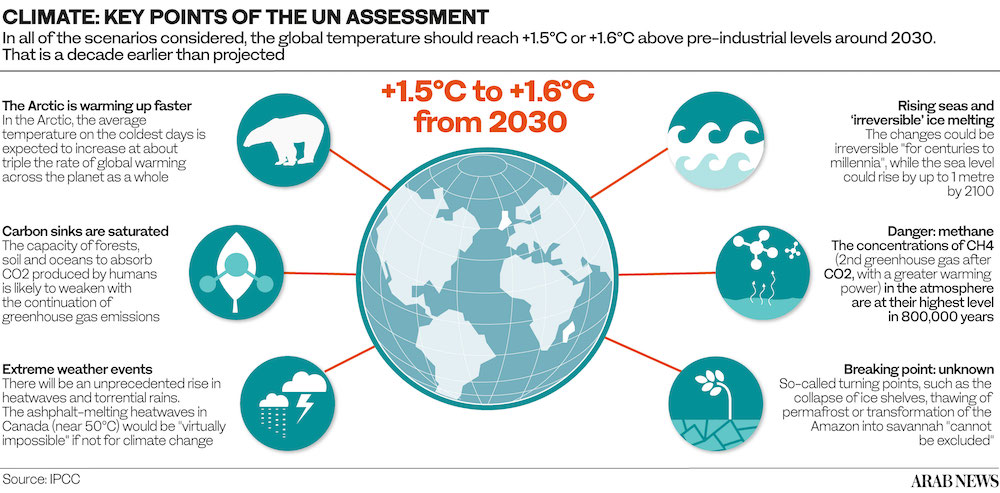
John Kerry, US President Joe Biden’s special presidential envoy for climate, detailed the significant progress made by countries throughout the MENA region.
The UAE is preparing to host the UN Climate Change Conference (COP28) in 2023, making it only the third Arab country to be given the honor. Egypt will be the host of COP27, to be held later this year, exactly 10 years after Qatar became the first Arab country to welcome COP delegates.
Held once a year, the conference brings together representatives of governments that signed the UN Framework Convention of Climate Change to discuss how to jointly address climate change.
The Paris Agreement, signed by almost all countries in the world at COP21 in 2015, aims, among other things, to keep the rise in the global average temperature to “well below” 2 degrees Celsius above pre-industrial levels, but ideally keep it to 1.5 degrees.
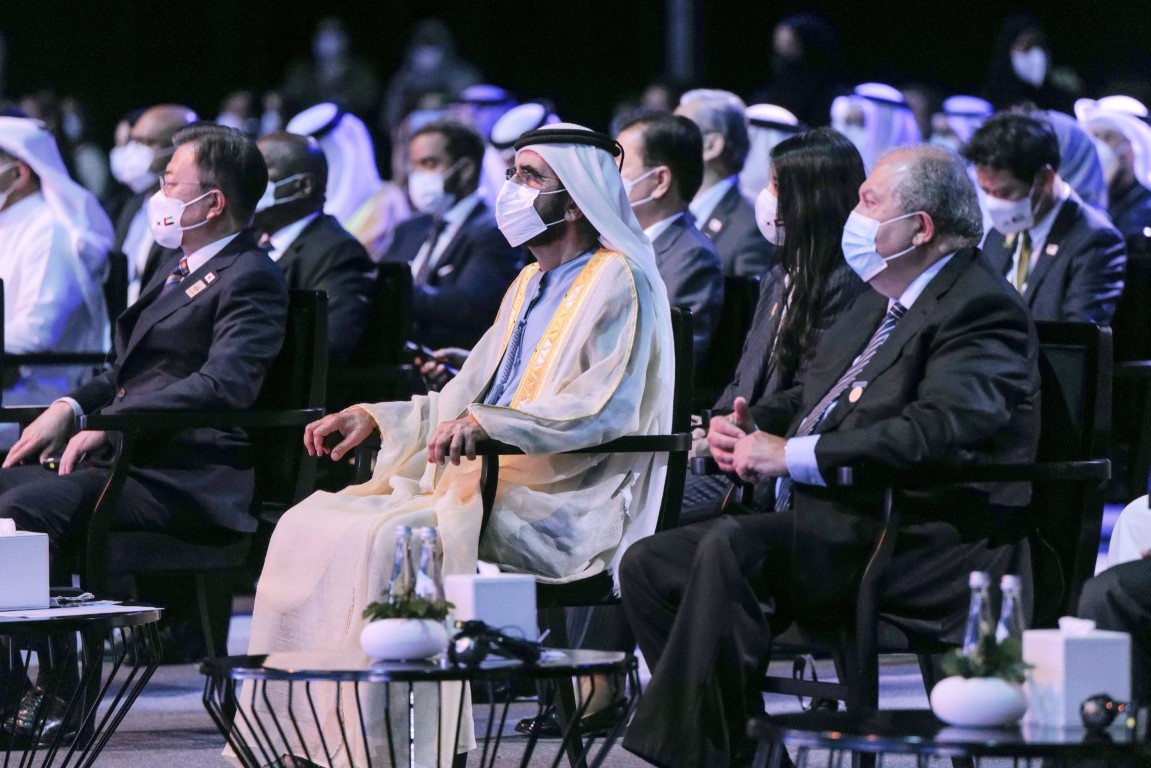
The UAE is preparing to host the UN Climate Change Conference (COP28) in 2023, making it only the third Arab country to be given the honor. (AFP)
“The region is stepping up and it’s an extremely important message to the rest of the world, that (those) who are producers of the current source of our power, energy and heating, recognize that there will be a transition,” Kerry said.
“Clearly, we are moving toward clean, renewable power and sustainable structures, and the Middle East, together with the Horn of Africa, is going to play a huge role in that over the course of the next two years.”
Indeed, MENA oil and gas producers are increasingly being viewed as part of the solution, with the region boasting some of the lowest methane emissions in their production.
While carbon dioxide is widely identified as the chief culprit behind global warming, methane is second on the list of the worst greenhouse gas contributors to climate change.
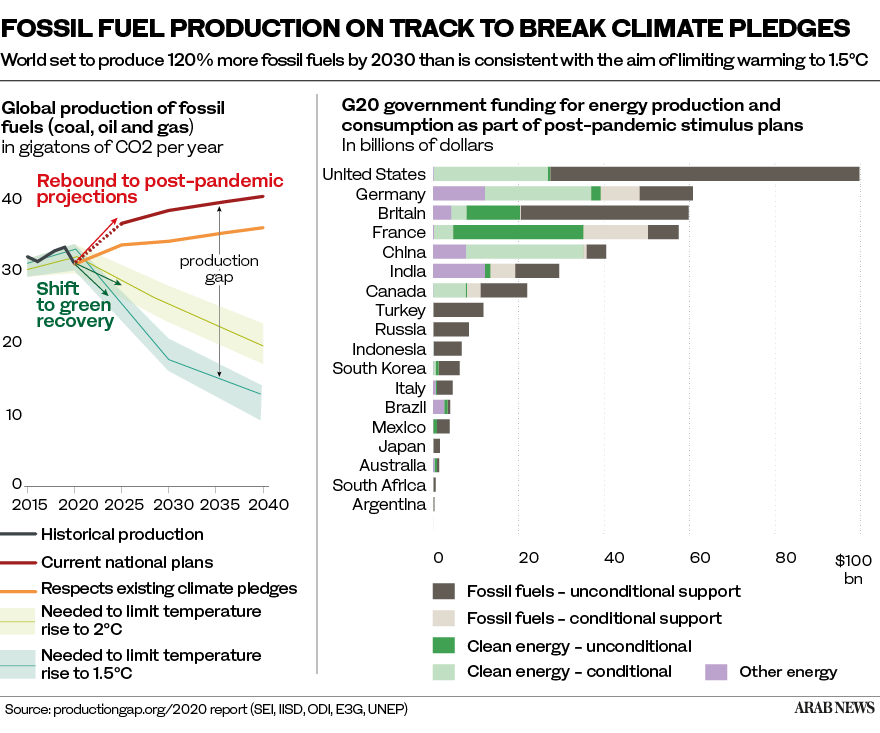
Total indirect greenhouse gas emissions from oil and gas operations today are around 5,200 million tons of carbon-dioxide equivalent. Methane is the largest single component of these indirect emissions.
Unlike CO2, which stays in the atmosphere for thousands of years, methane is gone in about 10 to 15 years. But while it is in the atmosphere, methane has a detrimental effect up to 85 times worse than CO2 (over a 20-year period).
“That is a serious problem when we look at the fact that over the next 10 years. We have our greatest challenge of trying to reduce our emissions by at least 45 percent,” Kerry said. “So, to achieve that, methane has to be part of the solution and, for whatever reason, it has been the stepchild of the process and nobody has really focused in on it.”
This year, Biden and the EU announced an initiative to get 109 nations to sign the methane pledge and start working together to “plug the leaks.”
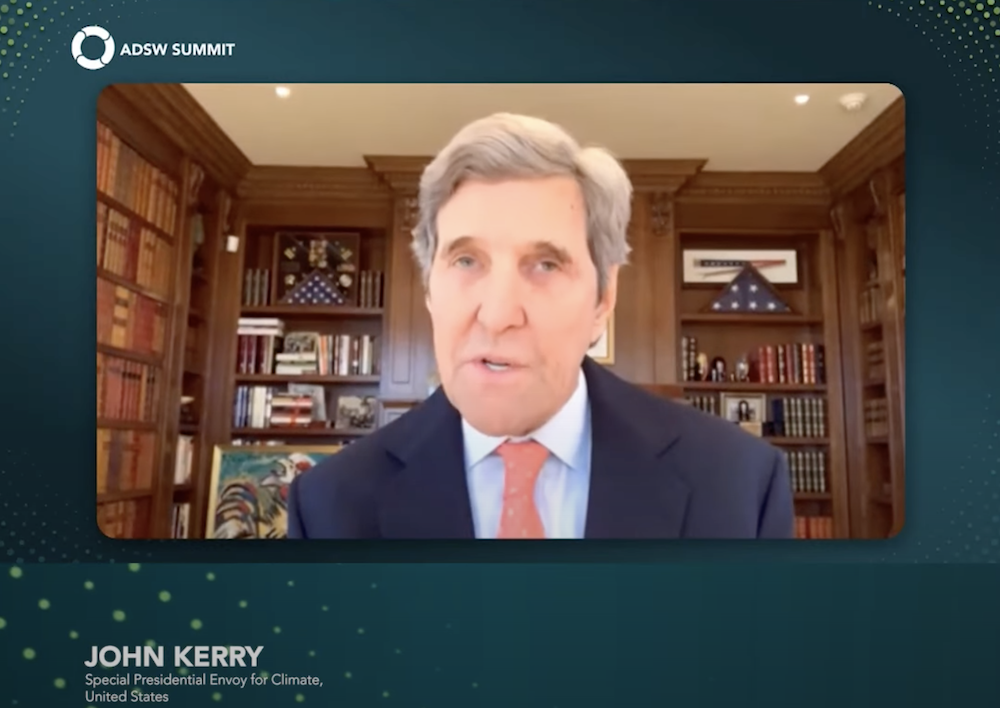
John Kerry, US President Joe Biden’s special presidential envoy for climate, detailed the significant progress made by countries throughout the MENA region. (Supplied)
The collective hope is that global methane emissions will be reduced by 30 percent by 2030 — the equivalent of every automobile, truck, aircraft and ship going to zero emissions in that time. “That’s a gigantic gain for all of us,” Kerry said. “It saves about 0.2 degrees on the rise of temperature during those 10 years and that would be a remarkable gain right now.”
The path to sustainable economies and societies will have to overcome the existential threat that climate change poses, with the latest Intergovernmental Panel on Climate Change report predicting that every region in the world will experience concurrent and multiples changes in climate impact drivers, such as more frequent rainfall, droughts and wildfires.
“These pale in comparison to the upheaval projected in coming decades,” Halimah Yacob, the Singaporean president, told ADSW attendees.
“However, tackling climate change is an immensely complex challenge and must go far beyond annual conferences. It requires a global response through ambitious plans, concrete action and resolute commitment from all countries, big and small — this is the only way we can close the emissions gap and reach our collective goal of a net-zero planet.”
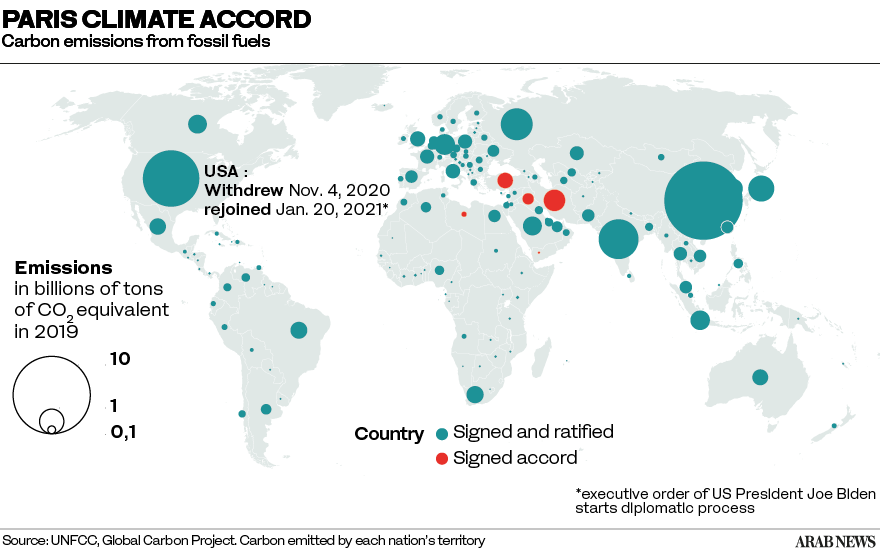
Today, renewable and clean sources of energy supply only 20 percent of global power, with current projections estimating that renewable energy sources will form only 40 percent of total global generation by 2040.
What this signifies, according to Awaidha Murshed Ali Al-Marar, chairman of the Abu Dhabi Department of Energy, is that the world will still need to use fossil fuels for decades to come.
“Like with any serious disease, the treatment plan won’t be effective and long-lasting unless it incorporates essential lifestyle adjustments,” Al-Marar said in his remarks at ADSW. “It is critical that we form new regional and international partnerships.”
Sheikh Nasser bin Hamad Al-Khalifa, the Bahraini king’s representative for humanitarian works and youth affairs and president of the Bahrain Olympic Committee, said that with the deadline for achieving the UN’s Sustainable Development Goals just eight years away, young people should have a seat at the climate table to ensure a greener future.
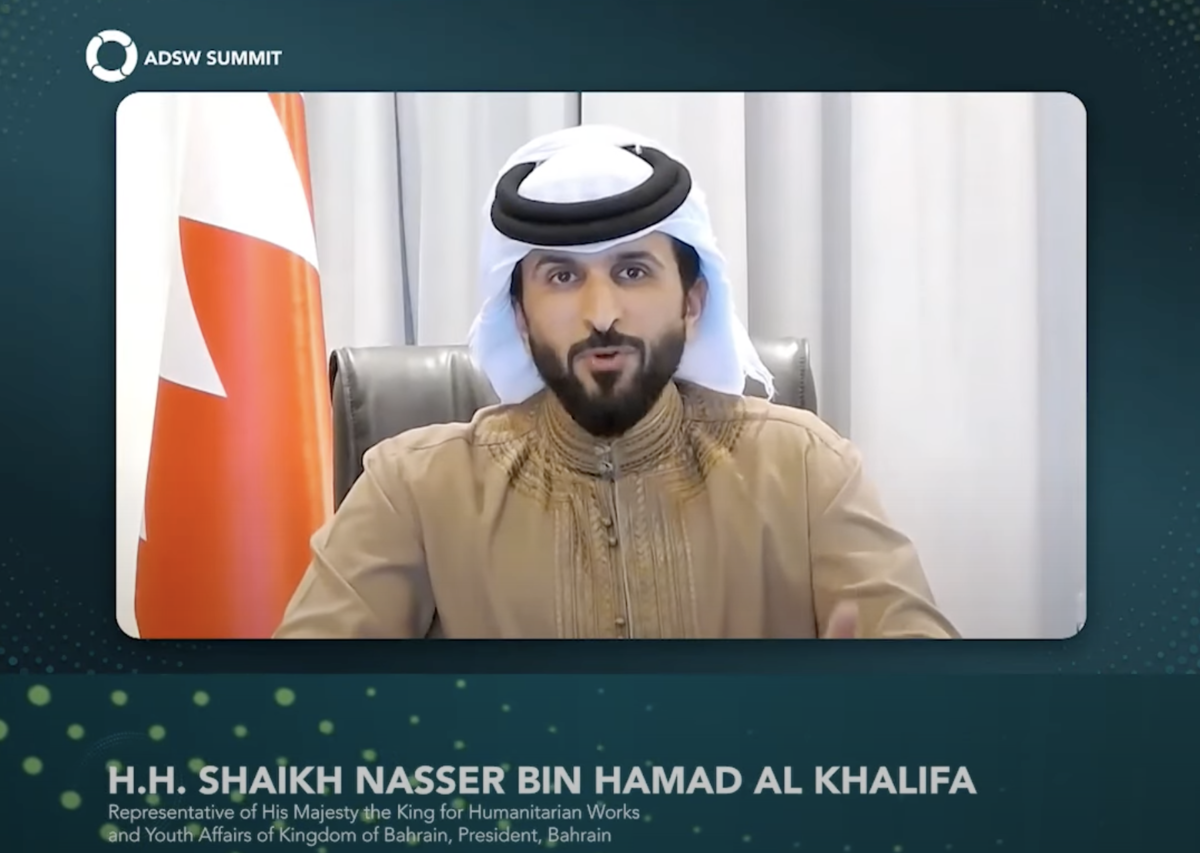
Sheikh Nasser bin Hamad Al-Khalifa, the Bahraini king’s representative for Humanitarian Works and Youth Affairs and President of the Bahrain Olympic Committee, said young people must have a seat at the climate table. (Supplied)
The world’s 1.8 billion young citizens will be worst affected by the climate crisis, and they are considered the most committed to change, armed with innovative ideas for effecting positive change for tomorrow, Al-Khalifa told ADSW.
“Youth are passionate, energetic, curious, committed, connected, knowledgeable and technologically equipped,” Al-Khalifa said.
“Without support, they cannot leverage these unique attributes to be the real game changers in creating a net-zero future. We must trust youth in the power to lead meaningful change.”
Bahrain has set up several initiatives to involve its youth in the process, in line with its Economic Vision 2030, Al-Khalifa said.
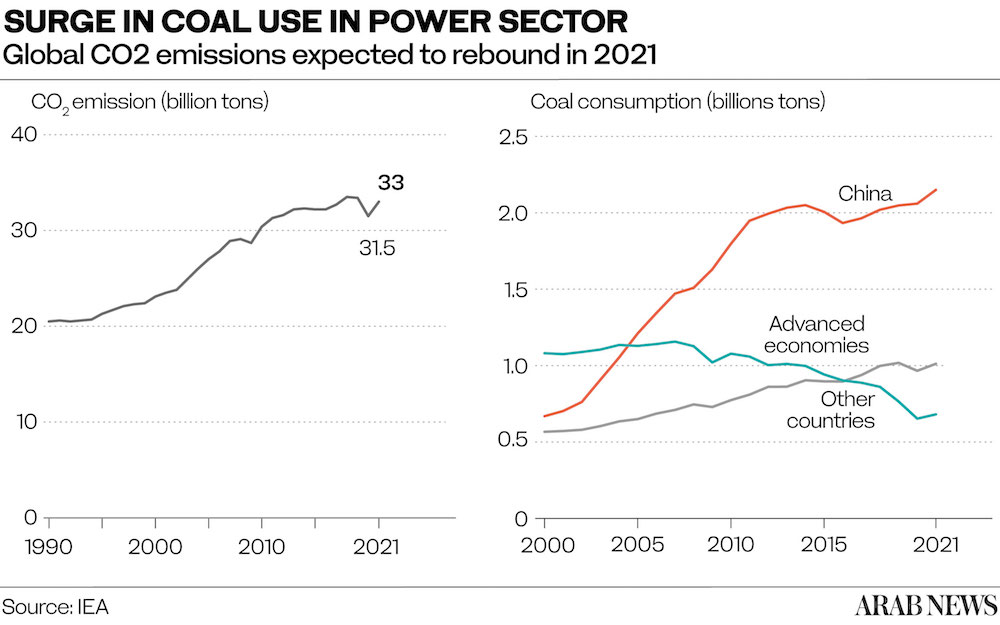
He expressed great hope in young people, describing them as malleable, resilient and tech-savvy. He said that they are early adopters, innovators and trendsetters. “All this makes them primed and prepped for innovation, disruption and catalysts of new thought and creative solutions,” the sheikh added.
“We see this positive ethos and youth culture spread across different sectors and spheres. As we chart our pathways for a greener future, youth will remain the driving force for socio-economic and cultural transformation across our communities.”
Despite the enormous commitment made in Glasgow at last year’s COP26, Kerry said the challenge today is to work with the remaining 35 percent and bring them on board as rapidly as possible to meet that goal.
“We know that the warming is going on at accelerated rates, particularly in the Arctic, where ice is melting much more rapidly and several times faster than anywhere else on the planet,” he said.
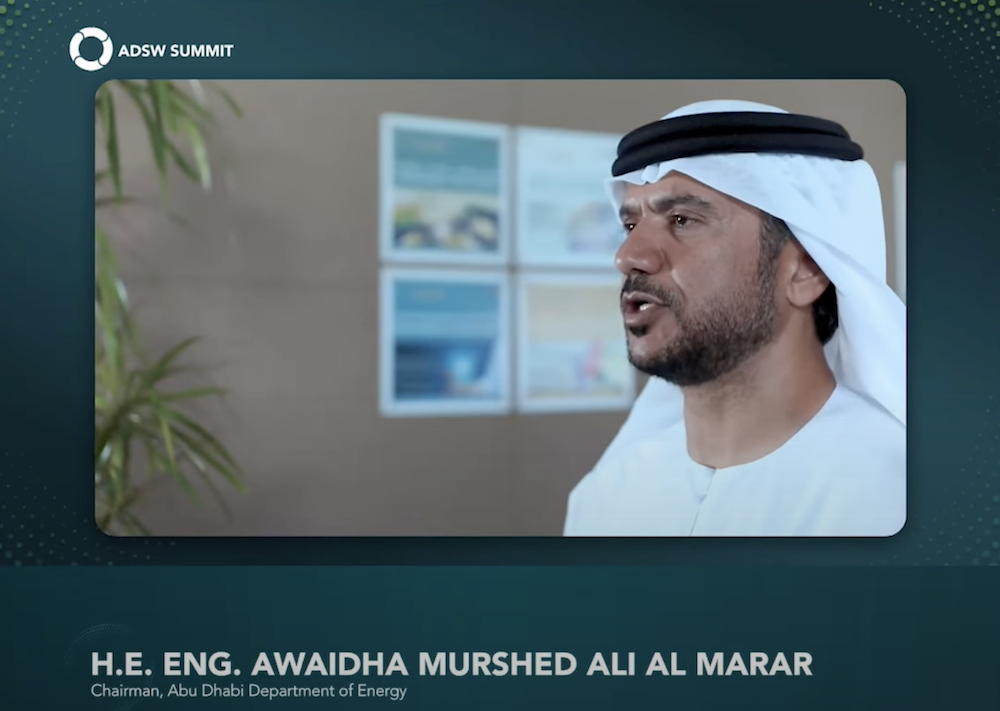
Awaidha Murshed Ali Al-Marar, chairman of the Abu Dhabi Department of Energy, addresses Abu Dhabi Sustainability Week. (Supplied)
“And as the ice melts, it opens up dark brackish ocean waters, which contain more heat and that accelerates warming. So, you have a negative feedback loop.”
With mudslides, storms and floods intensifying around the world, Kerry pointed out that when countries gather next year to assess their progress, thanks to the advantage of visibility through satellites, every country will be held accountable without the need to report.
“People are going to be able to measure what’s happening with deforestation and the carbon footprint of big corporations and countries,” he said. “We’ve made a big leap forward, but no one is moving fast enough. We are way behind in our retirement of coal power plants and in our efforts to stop leakage of methane and deploy renewable energy.”
In this race against time, however, the private sector will play a crucial role as Kerry believes no government can afford to accelerate such a transition on its own. Global efforts have identified over $100 trillion ready to be invested in new technologies related to clean energy, from battery storage, carbon capture, utilization and storage, smart grids and hydrogen.
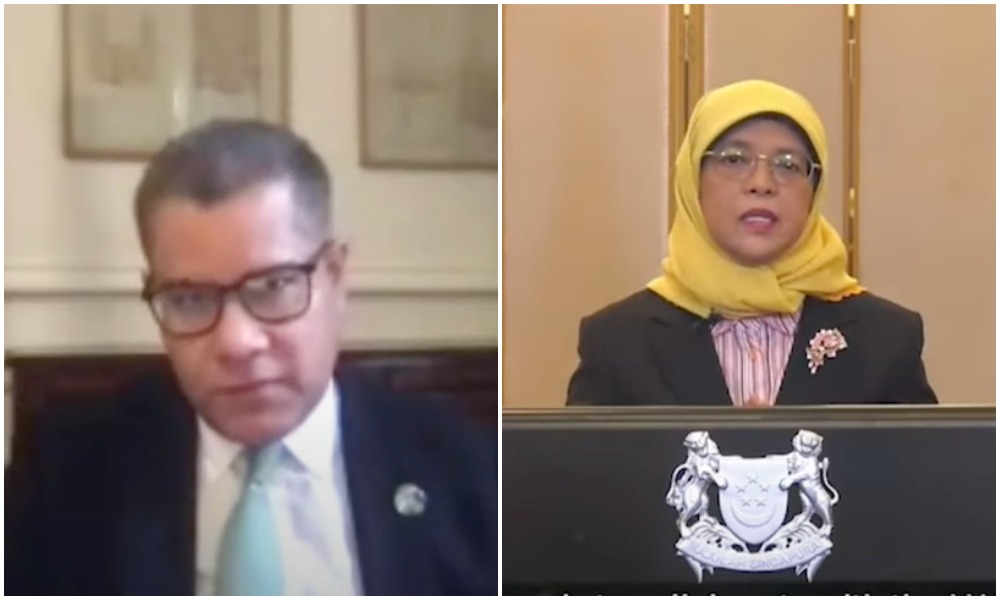
Among the ADSW participants was Alok Sharma (L), the British minister and president of COP26, and Halimah Yacob (R), the Singaporean president. (Screenshots/ADSW)
“The reality is that it’s going to need a very significant amount of investment to effect this transition,” Kerry said. “Energy produces revenue, so we have to be creative about how we deploy that money.
“It is better to be investing in a big solar field or a new energy product that will produce revenue, rather than to leave your money sitting in a bank somewhere with net negative interests.”
Among the ADSW participants was Alok Sharma, the British minister and president of COP26, who arrived in the UAE from Egypt, where he met a wide range of government ministers, including Egypt’s COP president-designate, Foreign Minister Sameh Shoukry.
Together they issued a UK-Egypt statement which affirmed their joint commitment to accelerating the fight against climate change during this decade.
Sharma’s first visits following COP26 will culminate in a meeting between Egypt, the UAE and Britain in Abu Dhabi, the first of a series of engagements between the countries in the lead-up to COP27 and COP28.














